Same-sex marriage is legal in all parts of the United Kingdom. As marriage is a devolved legislative matter, different parts of the United Kingdom legalised at different times; it has been recognised and performed in England and Wales since March 2014, in Scotland since December 2014, and in Northern Ireland since January 2020. Civil partnerships, which offer most, but not all, of the rights and benefits of marriage, have been recognised since 2005.

Attitudes in Ireland towards lesbian, gay, bisexual, and transgender (LGBT) people are among the most liberal in the world. Ireland is notable for its transformation from a country holding overwhelmingly conservative attitudes toward LGBT issues, in part due to the opposition by the Roman Catholic Church, to one holding overwhelmingly liberal views in the space of a generation. In May 2015, Ireland became the first country to legalise same-sex marriage on a national level by popular vote. The New York Times declared that the result put Ireland at the "vanguard of social change". Since July 2015, transgender people in Ireland can self-declare their gender for the purpose of updating passports, driving licences, obtaining new birth certificates, and getting married. Both male and female same-sex sexual activity have been legal in the state since 1993. Government recognition of LGBT rights in Ireland has expanded greatly over the past two decades. Homosexuality was decriminalised in 1993, and most forms of discrimination based on sexual orientation are now outlawed. Ireland also forbids incitement to hatred based on sexual orientation.

The rights of lesbian, gay, bisexual, and transgender (LGBT) people in the United Kingdom of Great Britain and Northern Ireland have developed significantly over time. Today, lesbian, gay, and bisexual rights are considered to be advanced by international standards. However, the country has developed an increasingly negative reputation regarding the status of transgender rights, with anti-trans rhetoric being described as "rife" in the UK media landscape.

New Zealand lesbian, gay, bisexual, and transgender (LGBT) rights are some of the most extensive in the world. The protection of LGBT rights is advanced, relative to other countries in Oceania, and among the most liberal in the world, with the country being the first in the region and thirteenth in the world to enact same-sex marriage.
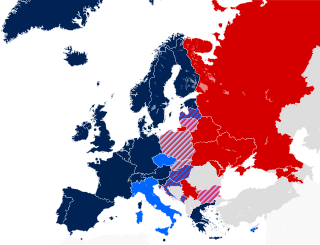
Lesbian, gay, bisexual, and transgender (LGBT) rights are widely diverse in Europe per country. Twenty of the 35 countries that have legalised same-sex marriage worldwide are situated in Europe. A further eleven European countries have legalised civil unions or other forms of more limited recognition for same-sex couples.

Lesbian, gay, bisexual, transgender (LGBT) rights in Scotland are generally in line with the rest of the United Kingdom, which have evolved extensively over time and are now regarded as some of the most progressive in Europe. In both 2015 and 2016, Scotland was recognised as the "best country in Europe for LGBTI legal equality".
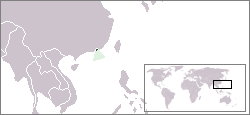
Lesbian, gay, bisexual, and transgender (LGBT) people in Hong Kong may face legal challenges not experienced by non-LGBT residents.
Same-sex marriage has been legal in the Isle of Man since 22 July 2016. Legislation to open marriage to same-sex couples passed the House of Keys on 8 March 2016 and the Legislative Council on 26 April. It received royal assent on 13 July and took effect on 22 July.

Lesbian, gay, bisexual, and transgender (LGBT) rights in Queensland have advanced significantly from the late 20th century onwards, in line with progress on LGBT rights in Australia nationally. Private consensual sex between men has been legal in the state since 1991, with lesbian sexual acts never criminalised. The age of consent was equalised to 16 years for all sexual acts in 2016. Sexuality and gender identity are protected attributes under both state and federal anti-discrimination laws. Same-sex couples may marry under Australian law, enter into a civil partnership under state law or live together in an unregistered de facto relationship. Same-sex couples may become parents through adoption, foster care, altruistic surrogacy and, for lesbian couples, IVF. In 2020, Queensland became the first jurisdiction within Australia to pass a law banning conversion therapy, with a maximum penalty of 18 months imprisonment and fines. State anti-discrimination protections for sexuality and gender identity were introduced in 2002 and in 2017 the gay panic defence was abolished from the criminal law. Transgender and intersex Queenslanders are able to update their government records and birth certificate, with the formal repeal of both the "divorce requirements" in 2018 and then the "surgery requirements" in 2023.
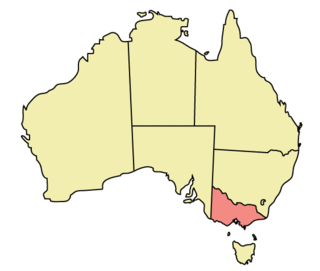
The Australian state of Victoria is regarded as one of the most progressive jurisdictions with respect to the rights of lesbian, gay, bisexual, transgender and intersex (LGBTI) people.
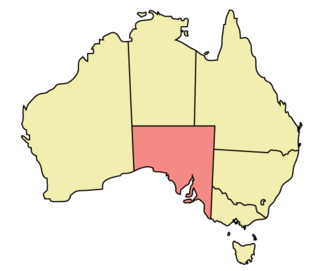
The rights of lesbian, gay, bisexual, and transgender (LGBT) people in the Australian state of South Australia are advanced and well-established. South Australia has had a chequered history with respect to the rights of LGBT people. Initially, the state was a national pioneer of LGBT rights in Australia, being the first in the country to decriminalise homosexuality and to introduce a non-discriminatory age of consent for all sexual activity. Subsequently, the state fell behind other Australian jurisdictions in areas including relationship recognition and parenting, with the most recent law reforms regarding the recognition of same-sex relationships, LGBT adoption and strengthened anti-discrimination laws passed in 2016 and went into effect in 2017.

Lesbian, gay, bisexual and transgender (LGBT) people in the British Overseas Territory of the Falkland Islands enjoy most of the same rights as non-LGBT people. Marriage and civil partnerships have been open to both opposite-sex and same-sex couples since 29 April 2017. Discrimination on the basis of sexual orientation is constitutionally banned. Additionally, attitudes are largely positive; a public consultation found that 90% of respondents were in favour of same-sex marriage.

Lesbian, gay, bisexual, and transgender (LGBT) rights in the British Crown dependency of Guernsey have improved significantly in the past decades. Same-sex sexual activity for both men and women is legal in Guernsey. Same-sex marriage has been legal since 2 May 2017 in Guernsey, and since 14 June 2018 in its dependency, Alderney. Legislation approving the legalisation of same-sex marriage in its other dependency, Sark was given royal assent on 11 March 2020. Guernsey is the only part of the British Isles to have never enacted civil partnership legislation, though civil partnerships performed in the United Kingdom were recognised for succession purposes. Since April 2017, same-sex couples can adopt in the entire Bailiwick. Discrimination based on sexual orientation and gender identity has been banned since 2004. Transgender people can legally change gender since 2007.

Lesbian, gay, bisexual, and transgender (LGBT) people in the Australian state of Tasmania have the same legal rights as non-LGBT residents. Tasmania has a transformative history with respect to the rights of LGBT people. Initially dubbed "Bigots Island" by international media due to intense social and political hostility to LGBT rights up until the late 1990s, the state has subsequently been recognised for LGBT law reforms that have been described by activists such as Rodney Croome as among the most extensive and noteworthy in the world. Tasmania imposed the harshest penalties in the Western world for homosexual activity until 1997, when it was the last Australian jurisdiction to decriminalise homosexuality after a United Nations Human Rights Committee ruling, the passage of federal sexual privacy legislation and a High Court challenge to the state's anti-homosexuality laws. Following decriminalisation, social and political attitudes in the state rapidly shifted in favour of LGBT rights ahead of national trends with strong anti-LGBT discrimination laws passed in 1999, and the first state relationship registration scheme to include same-sex couples introduced in 2003. In 2019, Tasmania passed and implemented the world's most progressive gender-optional birth certificate laws. In July 2023, the Tasmanian government officially included and also added "asexual or asexuality".
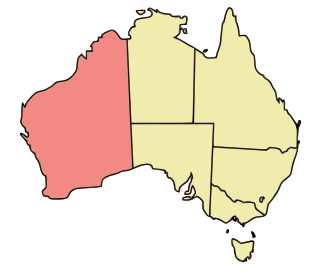
Lesbian, gay, bisexual and transgender (LGBT) rights in Western Australia have seen significant progress since the beginning of the 21st century, with male sex acts legal since 1990 and the state parliament passing comprehensive law reforms in 2002. The state decriminalised male homosexual acts in 1990 and was the first to grant full adoption rights to LGBT couples in 2002.
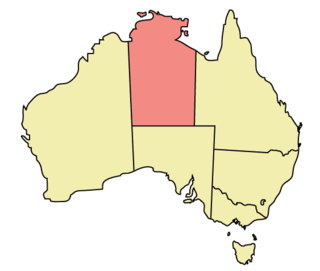
Lesbian, gay, bisexual, and transgender (LGBT) persons in Australia's Northern Territory enjoy the same legal rights as non-LGBT residents. The liberalisation of the rights of lesbian, gay, bisexual and transgender (LGBT) people in Australia's Northern Territory has been a gradual process. Homosexual activity was legalised in 1983, with an equal age of consent since 2003. Same-sex couples are recognised as de facto relationships. There was no local civil union or domestic partnership registration scheme before the introduction of nationwide same-sex marriage in December 2017, following the passage of the Marriage Amendment Act 2017 by the Australian Parliament. The 2017 Australian Marriage Law Postal Survey, designed to gauge public support for same-sex marriage in Australia, returned a 60.6% "Yes" response in the territory. LGBT people are protected from discrimination by both territory and federal law, though the territory's hate crime law does not cover sexual orientation or gender identity. The territory was the last jurisdiction in Australia to legally allow same-sex couples to adopt children.
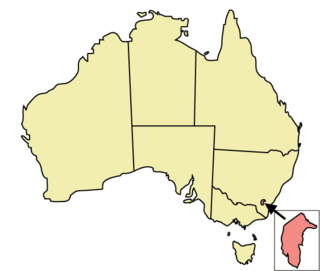
The Australian Capital Territory (ACT) is one of Australia's leading jurisdictions with respect to the rights of lesbian, gay, bisexual, transgender, queer and intersex (LGBTQI) people. The ACT has made a number of reforms to territory law designed to prevent discrimination of LGBT people; it was the only state or territory jurisdiction in Australia to pass a law for same-sex marriage, which was later overturned by the High Court of Australia. The Australian Capital Territory, Victoria and Queensland are the only jurisdictions within Australia to legally ban conversion therapy on children. The ACT's laws also apply to the smaller Jervis Bay Territory.

Lesbian, gay, bisexual, and transgender (LGBT) rights in the British Crown dependency of Jersey have evolved significantly since the early 1990s. Same-sex sexual activity was decriminalised in 1990. Since then, LGBT people have been given many more rights equal to that of heterosexuals, such as an equal age of consent (2006), the right to change legal gender for transgender people (2010), the right to enter into civil partnerships (2012), the right to adopt children (2012) and very broad anti-discrimination and legal protections on the basis of "sexual orientation, gender reassignment and intersex status" (2015). Jersey is the only British territory that explicitly includes "intersex status" within anti-discrimination laws. Same-sex marriage has been legal in Jersey since 1 July 2018.
The Isle of Man is a Crown Dependency located in the Irish Sea between the islands of Great Britain and Ireland with a population in 2015 estimated to be approximately 88,000. It enjoys a high degree of domestic, legislative and political autonomy through its ancient Parliament Tynwald. By convention, the United Kingdom Government is responsible for the conduct of the international relations and defence of the island. The Isle of Man does not have a written constitution, or a Bill of Rights which sets out its Human Rights. These rights are addressed in the Human Rights Act 2001. The island has also ratified a number of international treaties.
This is a list of notable events in the history of LGBT rights that took place in the year 2016.

















